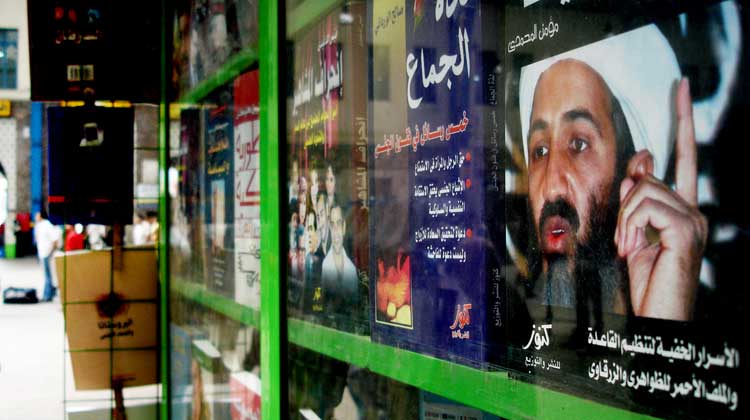
Although 9/11 constitutes the beginning of the war on terror for many, it’s actually a battle with roots that reach well back into the 20th century, marking a conflict that has ebbed and flowed for more than 25 years. Author David Eneboe explores this long fight and decisions surrounding the Middle East in his recent book It’s the Ideology: How to Defeat Islamist Terrorism Once and For All.
Addressing many of the shortcomings in the terrorism fight, the book offers a roadmap for the country’s future in the region. Eneboe recently spoke to Homeland411 about the book and the United States’ exploits against terror. Above all, he said the country is doing it wrong. Eneboe is disappointed that Washington hasn’t put together a cogent winning strategy, noting that it’s not just about prosecuting a war against terrorism; it’s a matter of winning a war against Islamism.
“In my view, we’re fighting the wrong war against the wrong enemy with the wrong tools,” he said. “And the reason for that is because we tend to get focused on fighting men in groups rather than fighting the ideology that binds them all together.”
 An intelligence professional in the field for 40 years, as well as a member of the U.S. Marine Corps, Eneboe spent more than a decade in the Middle East immersed in the language, culture, and ideology of the region; he’s also an expert on Islam. Having worked heavily in counterproliferation and counterterrorism capacities, Eneboe said the country keeps making the same mistakes.
An intelligence professional in the field for 40 years, as well as a member of the U.S. Marine Corps, Eneboe spent more than a decade in the Middle East immersed in the language, culture, and ideology of the region; he’s also an expert on Islam. Having worked heavily in counterproliferation and counterterrorism capacities, Eneboe said the country keeps making the same mistakes.
“This is really a war of hearts and minds,” he said. “And in order for us to actually win this war, we have to have a strategic investment in achieving a strategic victory.”
Those who become radicalized, Eneboe said, are not “card-carrying members of Al Qaeda,” or Islamic State, for that matter, but they embrace the ideology. Defeating the ideology is at the core of winning the fight. Although investing in counterterrorism and defense is important, he said, it doesn’t win hearts and minds.
Part of this is recognizing the history of the current conflict. While the United States is in the third presidential administration since 9/11, Eneboe noted that the fight with Al Qaeda is more than a quarter of a century old. It started Dec. 29, 1992, when the group bombed the Gold Mohur Hotel in Aden, Yemen, targeting U.S. troops—the first such attack by Al Qaeda.
At the forefront is a misunderstanding of what the country is fighting, he said, noting the words of retired Marine Corps Commandant Alfred Gray: “He had a saying that he was heard to use—didn’t matter if they were planning for a massive amphibious landing or they were building an outhouse—he’d say, ‘What’s it going to look like when we’re finished?’” Eneboe said. “I don’t think anybody’s asking that question, and I have an answer for that question.”
The answer is a future without Islamist terrorists, and Eneboe’s book details his plan.
“We do away with that whole phenomenon by delegitimizing and defeating the ideology,” he said. “And I don’t believe we have to be fighting this war for generations; I don’t believe that for a moment, because if we have seven and a half billion or so people on this planet, they’re not all going to want to live under the black flag of the Islamic State.”
Though Eneboe believes victory is ultimately assured, policy missteps have worked against the United States in the region. One of the biggest mistakes, he said, was a miscalculation after the 2003 Iraq invasion that toppled Saddam Hussein’s regime.
“The Ottoman Empire put the Sunnis in charge of Iraq to act as a barrier against Shiite influence of the Ottoman Empire back in the early 16th century,” Eneboe said. “So when the [George W. Bush] administration went in there and signed with the stroke of a pen to de-Bathify the government, effectively what they were doing was putting the Sunnis out of power.”
As a result, the Shiite-dominated government expanded Iranian influence in the region.
“You could argue that the Iranian adventurism in Syria—and even in Lebanon to some degree—would not have happened if we left Saddam Hussein alone,” Eneboe said, but he added that a strong moral argument can be made in ending Hussein’s henchman-dominated regime as well.
“We solved a problem, but we created a bigger one,” Eneboe said. “And I think that the criticism I have of what happened during the 2003 invasion of Iraq was that we didn’t really stop and think of the geopolitical circumstances for what’s going to happen when you overturn a regime, because that stuff doesn’t happen in a vacuum.”
Eneboe added that American strategy in Iraq ended, as he sees it, when Hussein’s statue in Firdos Square fell less than a month after the invasion began.
“One of my comments in the book is ‘Exit strategies are for losers,’” he said. “We should have a strategy before the first shot is fired of what we’re going to do and what the endgame really is.”
Published by Potomac Institute Press, It’s the Ideology is available in Kindle and paperback versions at Amazon.com.
© 2018 Homeland411
Click here to subscribe to our weekly newsletter.